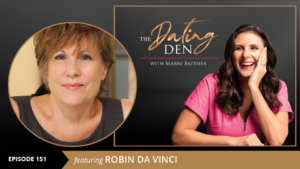We can all agree that starting a business is a lot of work. The end result of business we all strive for is simple but getting there is the hard task. There a way around this, you can streamline your processes so you only have to make a few decisions a day to improve the quality of your workday. When you have the systems and processes in place. Having your business working for you and not you working in your business.
One thing that many business owners do not take account of is managing their personal life. The day to day decisions you make in your personal life affect your business life as well. If either your personal or business life is in chaos then the other can not be simple. Make an effort to take a grip on both aspects of your life. It’s not an easy task but it’s required to be successful.
Before you give up or start on your business. You have to do your research. There are many questions you want to be able to answer if you want to be successful:
Who is your target marketing?
What are their needs?
What do they want from you?
Also, when going into business ask yourself these following questions:
What is my passion?
What do I do well?
How can I bring my passion to the forefront?
These past three questions will determine what products or services you should offer to the world. Business is going to be hard and it’s going to test you. If you’re doing something that you love and you do well, it’s going to increase the chances of you staying on the path and grind through those tuff times.
Don’t just start a business out of the blue and off of a hutch. Most people that do that will not be successful. That is taking a shot in the dark. You need to do your research and have these questions answered. These answers are proof of the concept that your business idea could work.
When I started my bookkeeping company, I knew there was a demand for the service because I started my business with a few referrals from people I knew. Not too many people thought of outsourcing their bookkeeping back in those days. I was one of the few people thought to do so.
During this time of starting your business, how are you going to support yourself? Are you going to be able to fund your business while still supporting your daily lifestyle?
Just because you start a business doesn’t mean your bills are going to stop coming in. So, because you make a big jump and take the plunge, make sure you have the financial means to fund your business.
When you do start your business, do you have the right business structure in place in terms of taxes and legal? Here are a couple of questions to ask regarding this:
Do you have a business bank account and credit card?
Are you able to separate your personal and business finances on paper?
Do you have all the legal business paperwork due for the state, local, and federal government?
If you reached this point, you’re probably asking now “how hard should I wait to assess myself if I am successful or not?” This is a very good question. What I tell every business owner that is going into business is that you need to be going at it for two full years to determine if you’re successful or not. You need to give yourself a time frame of two years before you can make an assessment of your business.
All these questions tie down to four things. Research, prepare, structure, and timeline.
These questions are just part of the first battle. Next, once you have all these questions in place. Be prepared to put in a lot of hard work. There are going to be long days and long hours. There will be self-doubt. If you’re able to put in the hard work to answer these question then you’ll be in a great position to be successful in the long run.



 of money, or gimmicks. And, this works for anyone, male or female, and works at any age. 35, 45, 55, 65, 75… you name it. The concepts are exactly the same.
of money, or gimmicks. And, this works for anyone, male or female, and works at any age. 35, 45, 55, 65, 75… you name it. The concepts are exactly the same. Being an entrepreneur tends to bring on more challenges than your daily 9-5 grind, even though it’s well worth it in the end.
Being an entrepreneur tends to bring on more challenges than your daily 9-5 grind, even though it’s well worth it in the end.
 We’ve all done it. We strive for perfection and will accept nothing less of ourselves… even though we all know that perfection is impossible.
We’ve all done it. We strive for perfection and will accept nothing less of ourselves… even though we all know that perfection is impossible.